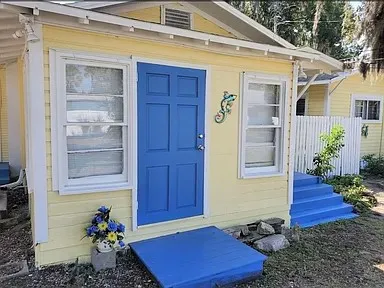Rent is expensive—and with vacant commercial spaces sitting unused in many cities, it’s no surprise some people ask: “Can you rent commercial property as residential?” Whether you’re thinking of turning an office space into a loft or living in a storefront, the answer depends heavily on local zoning laws, building codes, and your intended use.
Below, we break down everything you need to know about living in a commercial property, including legalities, risks, and potential exceptions.
Understanding Zoning Laws: The Main Roadblock
Zoning laws determine how every piece of land can be used—whether for residential, commercial, industrial, or mixed-use purposes.
If a property is zoned strictly for commercial use (like C1 or C2), you cannot legally use it as your primary residence unless:
- The zoning is mixed-use (e.g., live/work allowed)
- You obtain a variance or rezoning approval
- The property is reclassified or repurposed to meet residential code
Local zoning boards control these rules, so the answer will vary depending on the city or county.
📍 Example: In cities like San Francisco or New York, some buildings are pre-zoned for both commercial and residential use. In rural areas, restrictions may be tighter or more relaxed depending on the tax base and planning policies.
Risks of Living in Commercial Property Illegally
If you rent and live in a commercial space without the proper permits or zoning approval, you’re taking a serious legal risk. Violations could result in:
- Eviction notices from code enforcement
- Fines for both the tenant and landlord
- Insurance coverage denial in case of damage or injury
- Denial of essential utilities or services
Living in a commercial property that hasn’t passed residential safety codes could also expose you to health hazards such as poor ventilation, unsafe electrical wiring, or lack of egress.
—
When Can You Live in a Commercial Property?
Some exceptions do exist, and they’re usually tied to these scenarios:
1. Mixed-Use Developments
Many urban areas offer mixed-use zoning that allows for both business and residential occupancy. These are common in:
- Downtown city centers
- Revitalized industrial districts
- Live/work artist lofts
In this case, you may be able to live in the back while running a business in the front—legally.
2. Rezoning or Variance Approval
If you own a commercial property, you can apply to rezone the space or request a conditional use permit from your local zoning board. This process can be lengthy and may require:
- Public hearings
- Property inspections
- Fee payments
- Proof of infrastructure improvements (e.g., adding a bathroom or kitchen)
How to Convert Commercial Property Into Legal Living Space
If you’re serious about turning a commercial space into a home, you’ll need to:
- Hire an architect or contractor to assess building code compliance
- Submit renovation plans to the local building department
- Pass safety inspections for plumbing, electricity, and fire codes
- Install residential features: kitchen, full bathroom, heating/cooling
- Apply for a certificate of occupancy as a residence
Only once the space is certified for residential use can you legally live there or rent it out to someone else.
—
Is It Worth Renting Commercial Property as Residential?
It depends on your goals. Here are pros and cons:
✅ Pros:
- May be cheaper rent in business districts
- Larger open floor plans
- Unique aesthetics (brick walls, loft ceilings)
- Often located near transportation and services
❌ Cons:
- Requires legal zoning approval
- Costly renovations
- Possible insurance complications
- Utility and tax differences
If the space is truly mixed-use and allowed by your city, it can be a smart housing solution. But if you’re trying to circumvent zoning laws, it’s probably not worth the risk.
—
Final Answer: Can You Rent Commercial Property as Residential?
Not by default. You can only live in a commercial property if it’s legally zoned or approved for residential use. Check with your city’s planning department before signing any lease or attempting to convert a space.
If you’re a property owner, working with a real estate attorney or zoning consultant is your best move.
